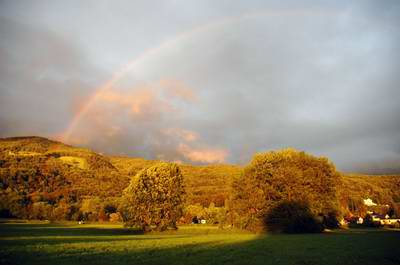The Magic Flute Premiered, September 30, 1791
Wolfgang A. Mozart conducted his opera 'The Magic Flute' in its first performance on September 30, 1791, in Vienna. His librettist, Schikaneder, was also the first Papageno.
Die Zauberflöte, K. 620 (The Magic Flute / Die Zauberfloete), is an opera in two acts composed by Wolfgang Amadeus Mozart to a German Libretto by Emanuel Schikaneder. This opera is in the form of a Singspiel, a popular form which included both singing and spoken dialogue. It premiered in Vienna on 30 September 1791 at Schikaneder's theatre, the Freihaus-Theater auf der Wieden.
The first performance was at an out-of-town but not obscure theatre. Schikaneder himself played Papageno, while the Queen was played by Mozart's sister-in-law Josepha Hofer. The opera was not an immediate success, but slowly, it gained popularity. By November 1792, Schikaneder announced the opera's 100th performance. Unfortunately, Mozart did not have the pleasure of attending his masterpiece as he died December 5, 1791.
On January 11, 1904, The Magic Flute (German: Die Zauberflöte) is first performed at the Metropolitan Opera, New York.
Today, Die Zauberflöte remains one of the most performed works of Mozart worldwide.
Below is a performance by The Royal Opera, with German soprano opera singer Diana Damrau superb as the queen singing 'Der Hölle Rache', the famous Queen of the Night aria. Interested with the lyrics to the 'Queen of the Night' aria? Here. (classicfm.com. 2 June 2018.)
Detlef Roth performs "Ein Mädchen oder Weibchen" (English: "A Girl or a Little Wife"). YouTube, uploaded by FoxyGrandpa. Accessed October 8, 2018.
Erich Kunz sings "Der Vogelfänger bin ich" in Mozart's Die Zauberflöte. YouTube, uploaded by liederoperagreats. Accessed 18 August 2018.
Simon Keenlyside as Papageno in Mozart "Die Zauberflöte" singing: "Papagena! Papagena! Papagena!". YouTube, uploaded by Priezza. Accessed 30 September 2014.
Video Credit:
Mozart - DIE ZAUBERFLÖTE - Queen of the Night aria, with The Royal Opera. Youtube, uploaded by The Royal Opera. Accessed 2 June 2018.
Note: I originally wrote and published this abridged version for Suite101, 30 September 2008. / Tel
Resources:
Various books from my private collection of Mozart books and other documentary materials. / Tel



